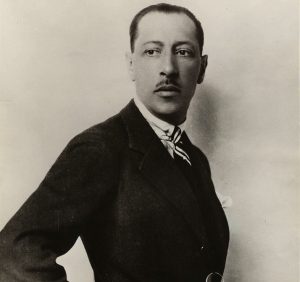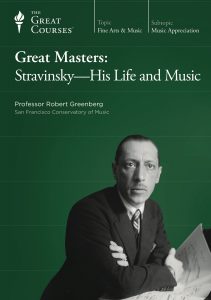We will return to the music of mid-century American symphonists next week. For now, we celebrate Igor Stravinsky’s spectacular and spectacularly influential Pulcinella in anticipation of his 139th birthday, which we will mark on June 17th in next week’s Music History Monday post.
Bad Times

The First World War (which ran from July 28, 1914 to November 11, 1918) was an unfathomable catastrophe. It laid waste to huge swatches of Western, Central, and Eastern Europe. It destroyed four multi-ethnic Empires: the Austro-Hungarian, Ottoman, Russian, and German empires. It created the preconditions for the civil war and the triumph of Bolshevism (soon to be known as Communism) in Russia and for civil war and the triumph of National Socialism (best known as Nazism) in Germany. In 1918 and 1919, a planetary population weakened by food shortages and wartime hardship succumbed to the Spanish influenza pandemic, which infected roughly 500 million people (about one-third of the world’s population at the time) and killed somewhere between 50 and 100 million people worldwide (a number comparable to those killed by the Black Death in the fourteenth century).
The War and the flu pandemic together killed nearly an entire generation of young Western men. The war and the pandemic also went a long way towards destroying the long-standing western faith in technological progress and the essential civility of Christian society. These were shattering events, events that affected Western arts and artists in the most profound ways.
Igor Stravinsky, Neo-Classicism, and a Look in the Mirror
Igor Stravinsky – whose brutal, ultra-modern The Rite of Spring of 1912 is today considered the single most important piece of music composed in the twentieth century – was a non-combatant. 32-years-old in 1914, Stravinsky’s frail health and small physical stature kept him out of the Russian army. Instead, he sat out the war in Switzerland hardly 100 miles from the trenches of the western front and watched while his world went up in flames: his brother Gury – two years his junior and his favorite – died serving in the Russian army, and his family’s summer home in Ustilug (in Ukraine) was seriously damaged in the fighting. At the same time, performances of his music dried up. By war’s end in 1918, Stravinsky – the sole breadwinner for a family of six – was in dire financial straits.
And then things got worse.… Continue reading the historical background that led to Stravinsky’s Pulcinella and see the “prescribed” recording, only on Patreon!

